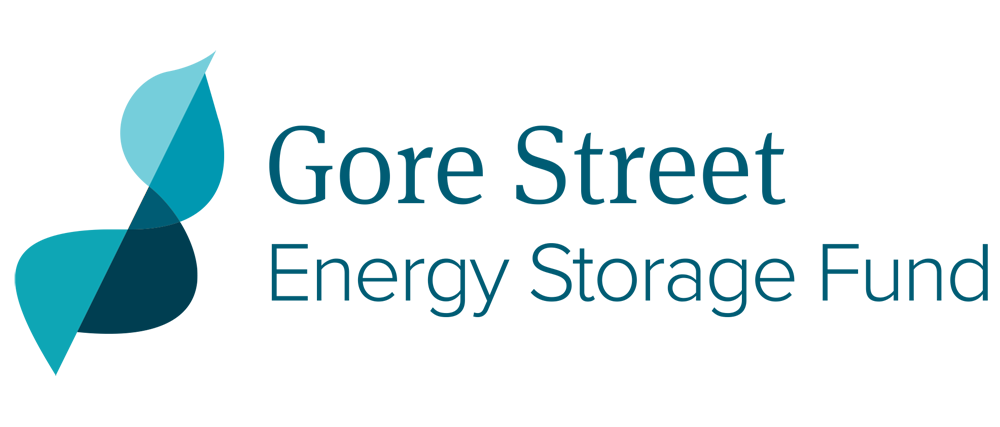FAQs - Portfolio and Investment
Energy storage refers to the capture of energy for the purposes of using it when needed to reduce imbalances between energy demand and supply. Battery energy storage owners provide grid operators with balancing services to support them in dealing with system intermittency, largely caused by the addition of renewable sources of electricity like wind turbines and solar farms. The technology is well established as a means of regulating power security, ensuring power quality and balancing electricity demand.
Main economic reasons to invest in energy storage are:
- High yield
The Company targets an attractive dividend of 7.0 pence per Ordinary Share in each financial year. - Growth potential in grid flexibility from
decarbonising environment
As the dominant technology for fast-acting, short-duration response incentivised by grid operators, lithium-ion battery energy storage prices have declined by over 80% in the last decade, allowing the technology to become a viable part of large-scale grid infrastructure. This has occurred as the contribution of wind and solar energy sources to total power generation has increased drastically, with renewables representing 43% of UK electricity supplies in 2023. This has increased demand for stable flexibility resources, which are expected to grow further internationally in the coming years as more markets focus on decarbonisation. - Multiple Revenue streams
Energy storage assets are able to access multiple revenue streams that can be stacked on top of each other. These are broadly separated into grid balancing services, peak shifting to ensure sufficient capacity is available, and energy trading. This combination provides flexibility to assets to participate in multiple markets and maximise value to investors.
The battery energy storage assets in the Company's portfolio benefit from several revenue streams across multiple, uncorrelated markets which can be divided into three general areas of activity.
Grid-balancing ancillary services respond to fluctuations in supply and demand in real-time to ensure grid operators are able to effectivity balance power flows across the energy system. These services compensate for voltage and frequency fluctuations that affect grid stability.
Peak shifting ensures sufficient capacity is available on a grid and is secured through long-term contracts on which the prevailing ancillary and/or wholesale merchant strategy can be stacked.
Wholesale energy trading activity involves purchasing electricity when the price is low to be stored and sold, or discharged, when prices are higher during periods of peak demand.
This combination of revenue streams is accessed by the Company across different geographies to protect revenues from any potential downturn in a single market, providing improved stability to the Company's performance.
Further explanation of how the Company earns revenues from these activities can be found in the latest Audited Full-Year Results for the year-ended 31 March 2024
The Company made a choice early on to acquire ready-to-build projects - those with land rights, planning permission and a grid connection all secured - where possible to manage the buildout process leveraging the Investment Manager's in-house technical teams. This ultimately leads to higher returns compared to an operational asset purchase strategy due to the successful management of the higher risk profile of construction projects, which can be built at cost without a markup included in the purchase price. The Company's strategy also ensures the best quality operational assets due to the tight controls in place from start to finish while continually bolstering the knowledge and expertise kept in the Investment Manager to be applied to future projects.
As the Company's presence continues to grow in scale, it can leverage its experience as an international owner to select favourable markets and projects whilst also evaluating any potentially advantageous capital recycling programs. The international portfolio's composition is continuously evaluated to ensure all capacity remains wedded to the Company's goals.
The Company typically reports revenue on a "MW per hour" basis. This includes every hour of the reporting period, including nights, weekends, and bank holidays
Please refer to the Investment Objective and Policy
section of the prospectus, which can be found here:
Prospectus 29 March 2022 (gsenergystoragefund.com)
Absolutely. While the Company's investment policy requires 40% of assets to be located in GB and Ireland, the Company can adjust capital allocation based on market conditions, given its presence across five markets. The Investment Manager is actively exploring and considering the sale of certain assets and reallocating that capital.
As a real asset investor, the Company's revenue generation is directly linked to operational megawatts (MW). Once an asset achieves commercial operation, the Company will generate additional revenue immediately.
The Manager's fees consist of:
- The Advisory Fee: The Investment Manager is entitled to receive from the Company an advisory fee payable quarterly in arrear calculated at the rate of one-fourth of one per cent. of Adjusted Net Asset Value (the “Advisory Fee”). For these purposes “Adjusted Net Asset Value” means Net Asset Value, minus cash on the Company balance sheet
- The Performance fee: If eligible, the Investment Manager will receive a sum equal to ten per cent. of such amount (if positive) by which Net Asset Value (before subtracting any accrued performance fee) at the end of a Calculation Period exceeds the Benchmark of 7 per cent. provided always that in respect of any financial period of the Company (being 1 April to 31 March each year) the performance fee payable to the Investment Manager shall never exceed an amount equal to 50 per cent. of the Advisory Fee in respect of that period.
In addition, the Investment Manager is paid a fee of £75,000 per annum for Alternative Investment Fund Manager (AIFM) services.
A Commercial Management Agreement (CMA) covers services required by the Company to enact its strategy and ultimately deliver returns to investors. These functions are kept in-house at the Investment Manager where possible to deliver a higher quality service at a lower cost than outsourcing to external parties.
CMA charges are provided to GSS, a direct subsidiary to the Investment Manager, and cover services integral to the Company's operations. These include the construction, asset management and commercial activities of the Investment Manager's technical team, which delivers and manages the safe operations of the Company's international portfolio. By retaining these services within the Investment Manager, the Company's exposure to variable contractor fees is reduced as costs are better controlled and managed to ensure efficient use of capital.
The CMA also includes, but is not limited to, accounting and reporting for entities across the GSF group; Company Secretary functions; corporate development; and other supporting services. In addition, it also contributes towards office fees and other background costs required to support the Company's activities. These costs are calculated and recharged quarterly in line with the accrued expenditure throughout the year.
As of 1 October 2025 the fees payable under the AIFM Agreement will be reduced to a fee calculated at 1% per annum of the average (50:50) of market capitalisation and Adjusted NAV. The revised investment management fee will be subject to a cap of 1% of Adjusted NAV. Investment management fees will be paid quarterly and market capitalisation will be calculated as the average of the closing daily market capitalisation on each business day in the quarter (Ordinary Shares held by the Company in treasury are to be excluded).
Also with effect from 1 October 2025, the performance fee, exit performance fee and termination fee on a takeover will no longer apply.
The Company believes the transition to a net zero economy is vital for securing a sustainable, prosperous future for all and is committed to reporting on the impact of its own operations when deploying energy storage systems. It continues to track and disclose a range of ESG metrics through internationally recognised frameworks in an effort to improve the measurement, management and disclosure of environmental and social outcomes. These frameworks include the Sustainable Finance Disclosure Regulation (SFDR) and Task Force on Climate-Related Financial Disclosures (TCFD).
The Company has also been awarded the London Stock Exchange's Green Economy Mark, acknowledging that it derives greater than 50% of its revenues from environmental solutions.
The Company has further joined the United Nations Principles for Responsible Investment (UN PRI) to incorporate ESG issues into investment practice.
The Company's Investment Manager has chosen to adopt the “Sustainability Focus” label as part of the Financial Conduct Authority's Sustainability Disclosure Requirements (SDR). The relevant disclosures can be found here.
Under existing waste regulations in Europe, the producer or commercial entity that brings batteries into the market is responsible for their collection and sustainable disposal.
The Company has owned assets since 2018 and has, therefore, had few instances where recycling of end-of-life battery cells is needed. Systems were removed from the Port of Tilbury asset in GB in February 2023 following a recall by LG Energy Solutions (LG-ES) after it was found that thousands of cells manufactured at two of the Company's sites between April 2017 and September 2018 may carry defects. The Company facilitated this process by connecting LG-ES with the battery recycling firm Battri, which uses hydrometallurgical to extract black mass material from cells for use in future battery systems.
As assets approach their end of life, the Investment Manager will explore available options to ensure that batteries are disposed of sustainably.
The Company is conscious of the overall supply chain of batteries, not just the end of their life cycle. As such, it is a member of the Fair Cobalt Alliance, which aims to improve working conditions for cobalt mining.
All assets within the Company's portfolio currently utilise lithium-ion technology. The portfolio includes projects of varying capacity, duration lengths and chemistries, including NMC cells (nickel manganese cobalt) and LFP (lithium iron phosphate) cells. The Company is technology agnostic but, at present, does not see any energy storage technology as a viable alternative to lithium-ion batteries due to its market dominance, pricing, safety, performance track record, and established infrastructure benefit. If technologies arise that are more efficient and cost-competitive, the Company can add these technologies to the portfolio under the existing investment mandate.
For an updated list of the manufacturers for each portfolio asset, please refer to the portfolio page on the website: https://www.gsenergystoragefund.com/content/about/portfolio
The Company's safety measures for the existing fleet are robust and significant, not only to ensure continued uptime for its assets but also to protect those working on site. As more capacity is added to the Company's portfolio and its global BESS fleet, it is key that correct health and safety standards are maintained and supported by appropriate regulations and widely available guidance.
Newer projects are being retrofitted with electrolyte vapour detection (additional mitigation through hardware to avoid thermal runaway). This measure, in conjunction with a robust health and safety strategy, mitigates fire risk. More information about health and safety can be found in the 2024 ESG & Sustainability report.
Lower battery prices affect the portfolio in numerous ways. For both operational and construction assets, a reduction in battery prices would result in lower repowering costs. Increasing the duration of some of the Company's assets also contributes to the economic case of retrofitting, as lithium-ion cells and battery packs represent the largest equipment cost required to add additional duration to existing sites. The Investment Manager remains cognisant of market conditions, particularly with the lack of availability of equity capital and the high cost of debt. The Company will build out its operational capacity of over 750 MW; anything beyond this is dependent on a series of variables, including debt costs, equity availability, capex costs, falling lithium costs, market opportunities, and revenue levels.
The unaudited Net Asset Value per Ordinary Share is calculated in sterling by the Administrator on a quarterly basis. Such calculations are published through a Regulatory Information Service and made available through the Company's website. The Net Asset Value is the value of all assets of the Company less its liabilities to creditors (including provisions for such liabilities) determined in accordance with the Association of Investment Companies' valuation guidelines and in accordance with applicable accounting standards under IFRS.
The Company's NAV is calculated and publicly disclosed every quarter. The Company's results undergo annual audits by the Company's auditor, Ernst and Young, along with valuations by the Company's external valuer, BDO. For the interim reporting period, the valuations are reviewed by Ernst and Young.
Please refer to the Portfolio section of the website,
found here:
https://www.gsenergystoragefund.com/content/about/portfolio
Projects have an expected lifespan of 25-30 years. Certain maintenance capital expenditures, such as battery replacements, are necessary during this period. Repowering occurs when batteries reach specific degradation thresholds, such as a predefined percentage of their nameplate capacity, to restore them to total capacity. We anticipate a repowering capital expenditure requirement every seven years as a general guideline, although this can vary by geography.
If the Company were to have available funds above the requirements of its construction portfolio, co-investment alongside the Japanese vehicle could be an attractive possibility.
The Company regularly tests the market for tolling agreements and are yet to be convinced they offer an attractive alternative or addition to our diversified approach to revenues. The recently and widely reported large tolling agreement in GB appears to fall in line with the price levels seen when testing the tolling market and, while it may serve to improve confidence among lenders, locking in an agreement at a low point in the market has considerable disadvantages.
Any upside from market recovery is eliminated for the tolling agreement period which, for investors, means they are forced to settle for a certain but potentially low return. Remaining merchant allows the Company to retain any potential upsides across a portfolio that is already derisked by its geographical spread across five uncorrelated markets.
More importantly, the Investment Manager has the control over each asset to optimise the Company's revenue strategy to ensure these upsides are accessible while ensuring they maintain best-in class operational performance. Tolls often come with increased cycle rates, which can degrade the battery, while putting in place stringent availability requirements and penalties if they dip below that level. The Investment Manager has an in-house commercial and asset management team working in unison to maintain availability while engaging in a wide range of optimal revenue streams.
There are a couple of differences between capacity market contracts in GB and the Resource Adequacy contract in California. For resource adequacy contracts, 4-hour duration is required, but in GB, there is the opportunity to bid as a one-hour asset. Also, the contract is not obtained through public auctions, but through bilateral negotiations with the suppliers, so there is no clear market price available, it's all negotiated bilaterally and not necessarily disclosed to third parties. Thirdly, there are more stringent and technical requirements for the CAISO RA contract. For GB, the Company is only expecting roughly 10% of revenue coming from capacity markets, for CAISO projects, the Company expects up to c. 40% from this long-term RA contract over the contract life.
The Company secured a Resource Adequacy contract for the Big Rock asset in California (200 MW / 400 MWh). This contract is worth over $14 million annually. Scheduled to commence in the summer of 2025, this contract is fully stackable, allowing for concurrent revenue streams across wholesale trading and ancillary services. This long-term fixed-price stackable contract will significantly enhance the Company's total revenue generation whilst further diversifying revenue streams and providing further stability.
For the overall portfolio, this adds a significant portion of contract revenue. Big Rock is a large asset and will contract a large portion of its capacity under RA. Under the RA, the Company will have a higher percentage of contracted revenue.
More information about the Resource Adequacy contract can be found here.
RNS Announcements
- Holding(s) in Company
16 January 2026 - Holding(s) in Company
14 January 2026 - Director Share Purchase and PDMR Dealing
19 December 2025 - Holding(s) in Company
18 December 2025
Our Portfolio
Find out about our portfolio
Investor Alert
Sign up for alerts


